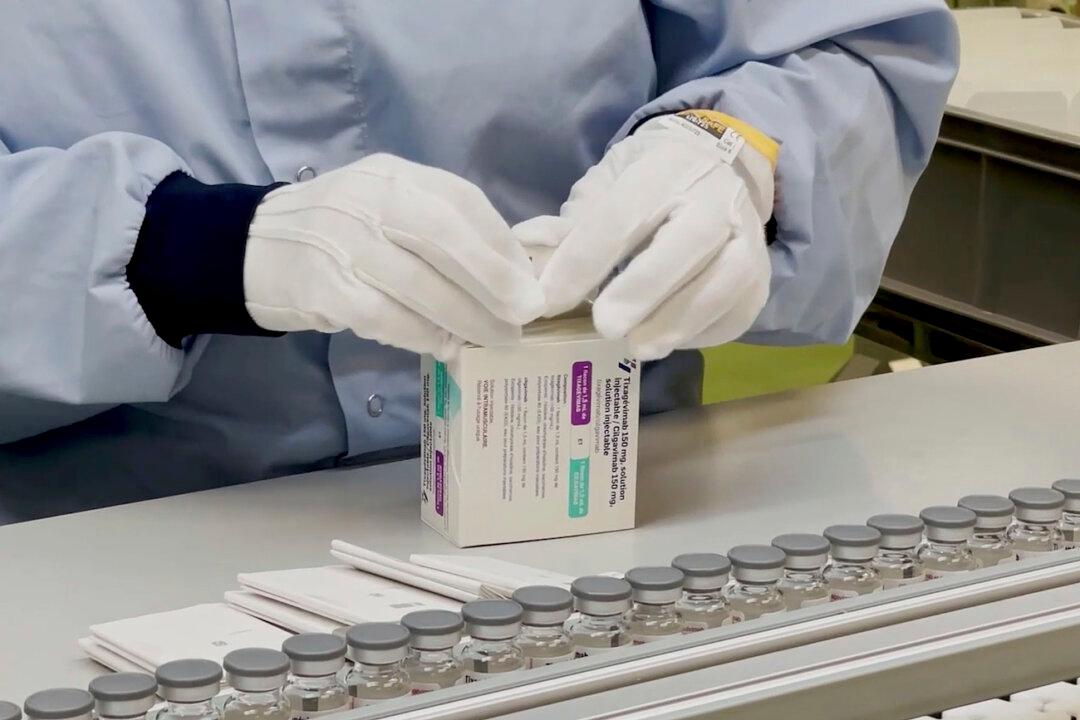A COVID-19 drug made by AstraZeneca did nearly as well against subvariants of the Omicron virus variant as the main variant, according to a new study.
Researchers with AstraZeneca, the Washington University School of Medicine, and other institutions used mice to test the monoclonal antibody combination, known as Evusheld, and a drug made by Vir Biotechnology, against the subvariants which have been increasing in prevalence in the United States.





